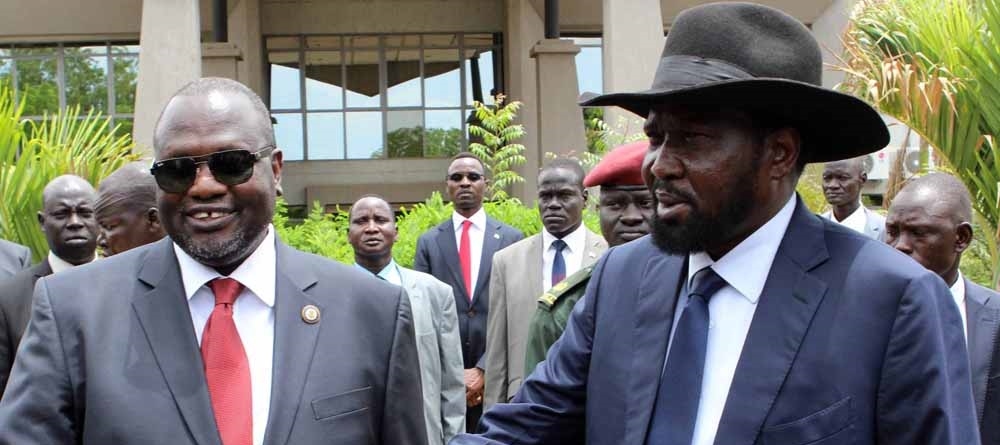South Sudan’s moves towards peace
June 27, 2018 | Expert Insights

In what could a breakthrough for the war-torn region of South Sudan, the region’s government has announced that President Salva Kiir and rebel leader Riek Machar will probably sign a peace deal. They have reportedly “agreed on some points” at peace talks in Khartoum.
Background
Sudan was once one of the largest countries in Africa. It is also a region that is geographically diverse and is rich in resources such as petroleum, iron ore, copper, zinc, silver, gold, hydropower and more. But through the decades the region is plagued by problems. Since becoming politically independent in 1956, proxy wars took place between Sudan, Chad and Libya which caused instability. In the 1980's, despite there was widespread famine. The first civil war ended in 1972 but the second war began in 1983. During this period, reportedly four million were displaced and two million died. Thus, the region came to be increasingly militarized. However, the worst was still yet to come.
South Sudan is a landlocked country in East-Central Africa. The country gained its independence from Sudan in 2011, making it the newest country with widespread recognition. Its capital and largest city is Juba. South Sudan has suffered ethnic violence and has been in a civil war since 2013. In December 2013, a political power struggle broke out between President Kiir and his former deputy Riek Machar, as the president accused Machar and ten others of attempting a coup d'état. The two have been at the opposite ends of two warring factions ever since.
Since the start of the conflict, almost 2 million people have been internally displaced, and another 2 million have sought refuge in neighboring countries, with 1 million in Uganda alone. More than 230,000 people are sheltering in six United Nations bases located in towns across the country. Famine was declared in conflict-affected areas in the former Unity state in the first half of this year.
Analysis
It should be noted that there have been multiple attempts in the past to negotiate for peace in the region. However, multiple peace treaties have not rendered fruitful results thus far. In 2016, Machar was briefly made the Vice President of the country, but peace was short lived. Violent fighting ensued, and he fled South Sudan in 2016. Machar has been held under house arrest in South Africa since late 2016.
In June 2018, the UN Security Council threatened an embargo on arms’ deals to the region unless the two rival leaders reached a resolution. Soon afterward, rebel leader Riek Machar arrived at Ethiopia to conduct high level talks with current President Salva Kiir. However, this ultimately proved to be fruitless and the two leaders failed to arrive at a consensus regarding ending the violence.
Days later, the two warring factions met up for peace talks in neighbouring Sudan. "I came to this meeting with an open mind and hope my brother Riek did the same," Kiir said at the beginning of the talks, which were mediated by Sudan's President Omar al-Bashir and also attended by Ugandan President Yoweri Museveni. He added, “I have come to really bring this unnecessary war in our country to an immediate end, and I hope that Doctor Riek Machar is ready to see my point.”
“President Salva Kiir and Doctor Riek Machar, in a closed meeting with President Bashir, have agreed on some points,” Sudanese Foreign Minister Al-Dierdiry Ahmed told reporters. “The details will be announced tomorrow.”
Machar’s spokesman, Peter Booth, had said earlier that two additional days of negotiations were needed.
Assessment
Our assessment is that any development that ushers in peace for the war-torn nation is a step in the right direction. However, this tenuous agreement should also be treated with caution. The two leaders have in the past agreed to peace treaties only to have violence once again resume in the region. Perhaps, with the mediation from Sudan, the outcome this time would be more positive.








Comments